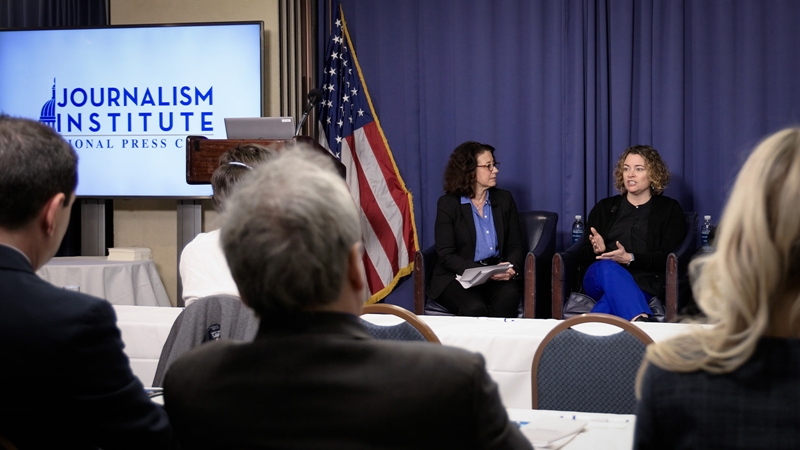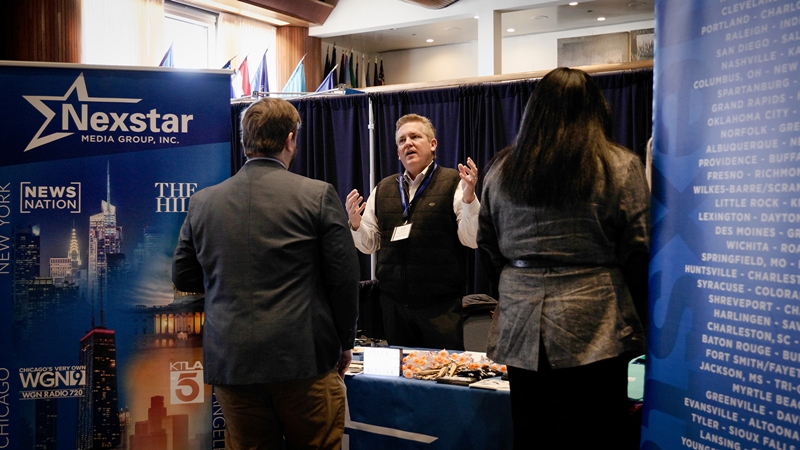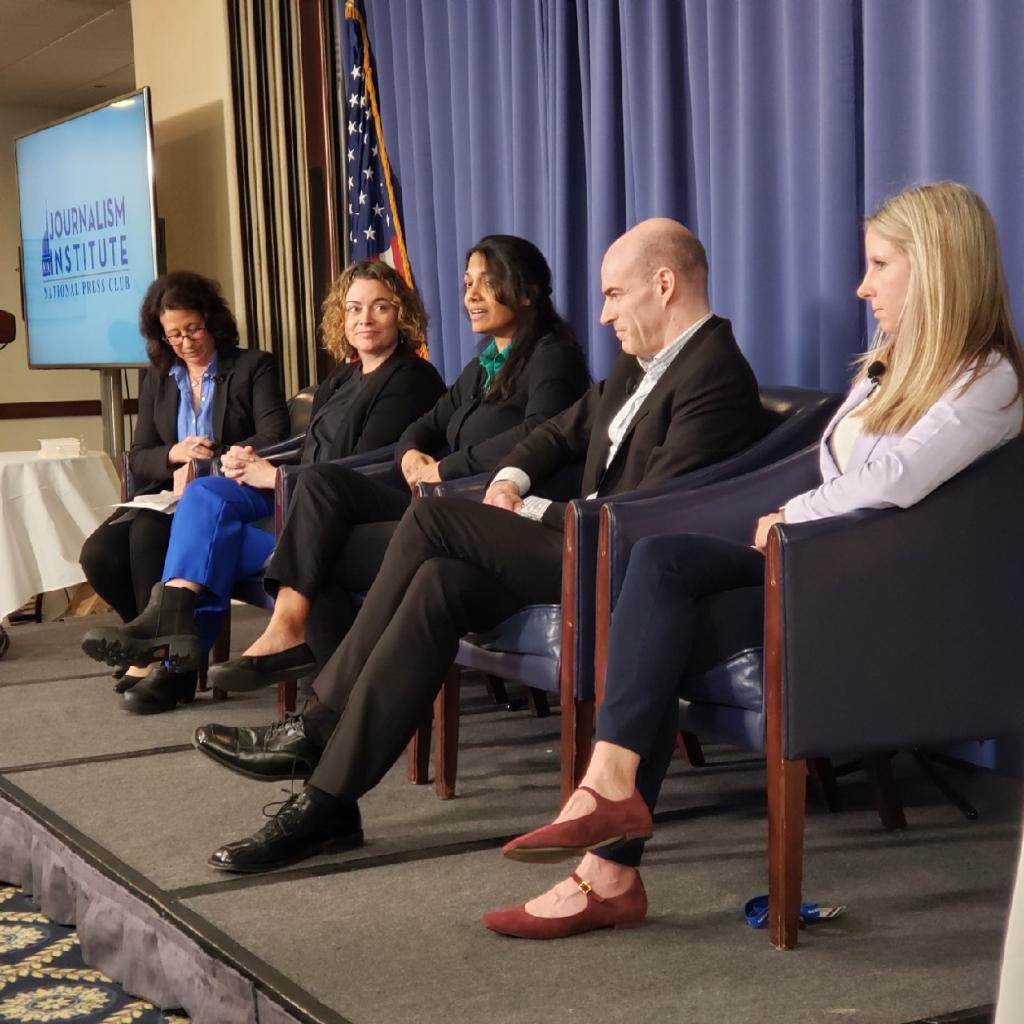Newsroom leaders express optimism about journalism jobs at Career Day
Despite a steady stream of layoffs, a dwindling number of local newspapers and continuing pressure on advertising revenue, newsroom leaders expressed optimism about job prospects at a National Press Club event Friday.
“I can’t recall a time when there wasn’t turmoil in journalism in my entire career,” Anna Johnson, Washington bureau chief at The Associated Press, said at the Club’s Career Day on March 22.
But journalism is resilient because there’s an unquenchable demand for it.
“People want good, quality information about the things that matter to them,” Johnson said. “They want to connect to other people in their communities, in their countries and around the world…and journalism does all that.”

The way journalism is presented will continue to move beyond traditional print, TV and radio as multimedia develops. The fundamentals of the craft, however, will remain the same, and there will always be a need for people who demonstrate them, Johnson said.
“I think there are always going to be opportunities, but it is just evolving,” Johnson said. “It certainly is right now. The innate skills of curiosity, wanting to be a storyteller, believing in facts and wanting to just report the facts…that is always a need out there. What that might look like or how it’s done” may change.
Vandana Sinha, regional editor at American City Business Journals, also is upbeat about the future of the profession.
“Journalism is a need in our society that will not go away,” Sinha said. “If you have reporting and writing skills and curiosity and a passion for this, there will be a way to do it. I don’t know exactly what it will look like.”
Johnson and Sinha participated in a Career Day panel that also included Ben Dobson, news director at DC News Now, and Sarah Babbage, a team lead at Bloomberg Industry Group.
Other sessions focused on interview techniques, cover letter strategies and job hunting approaches. Recruiters from 16 news organizations, journalism schools and trade groups filled the ballroom. The event, which was sponsored by the National Press Club Journalism Institute, drew nearly 200 participants.

At the start of their session, each of the newsroom hiring managers listed a number of open jobs in their newsrooms. They also outlined what makes for a competitive job candidate.
Babbage said she looks for someone who has thought through what he or she would do in the position they’re seeking. For instance, they come into an interview with three good story ideas and an approach to finding sources and doing research.
“If you show that level of preparation, enthusiasm, ability to do research, ability to conceptualize story ideas and a plan for executing, that’s extremely impressive,” Babbage said.
A candidate who shows an ability to develop a beat and sources will stand out for Johnson, she said. She said deep experience in a particular beat is not always necessary. AP reporters often change beats when they’re in the organization, she said.
“I’m looking for a track record [on a beat],’ Johnson said. She said she also likes to see “the eagerness to want to do the job, to dive right into it.”

Dobson said he, too, looks for enthusiasm and confidence. But he cautioned against an aggressiveness that is so strong that it alienates newsroom colleagues. He stressed that TV was a team sport.
“Are you willing to yield?” Dobson said. “Can you get along with others?”
A candidate wanting to work in front of or behind the camera also must accept that TV journalism often is made when other people are at home.
“When you talk about enthusiasm or passion, I’m talking about lifestyle, too,” Dobson said. “You have to be committed to it to succeed.”
The hiring managers addressed frustrations job hunters experience regarding timelines and communication. They said the hiring process often takes a minimum of eight to 12 weeks. They also said they never intentionally “ghost” an applicant. But sometimes it can take a while to respond to queries about a job because of the volume of interest in the position.
